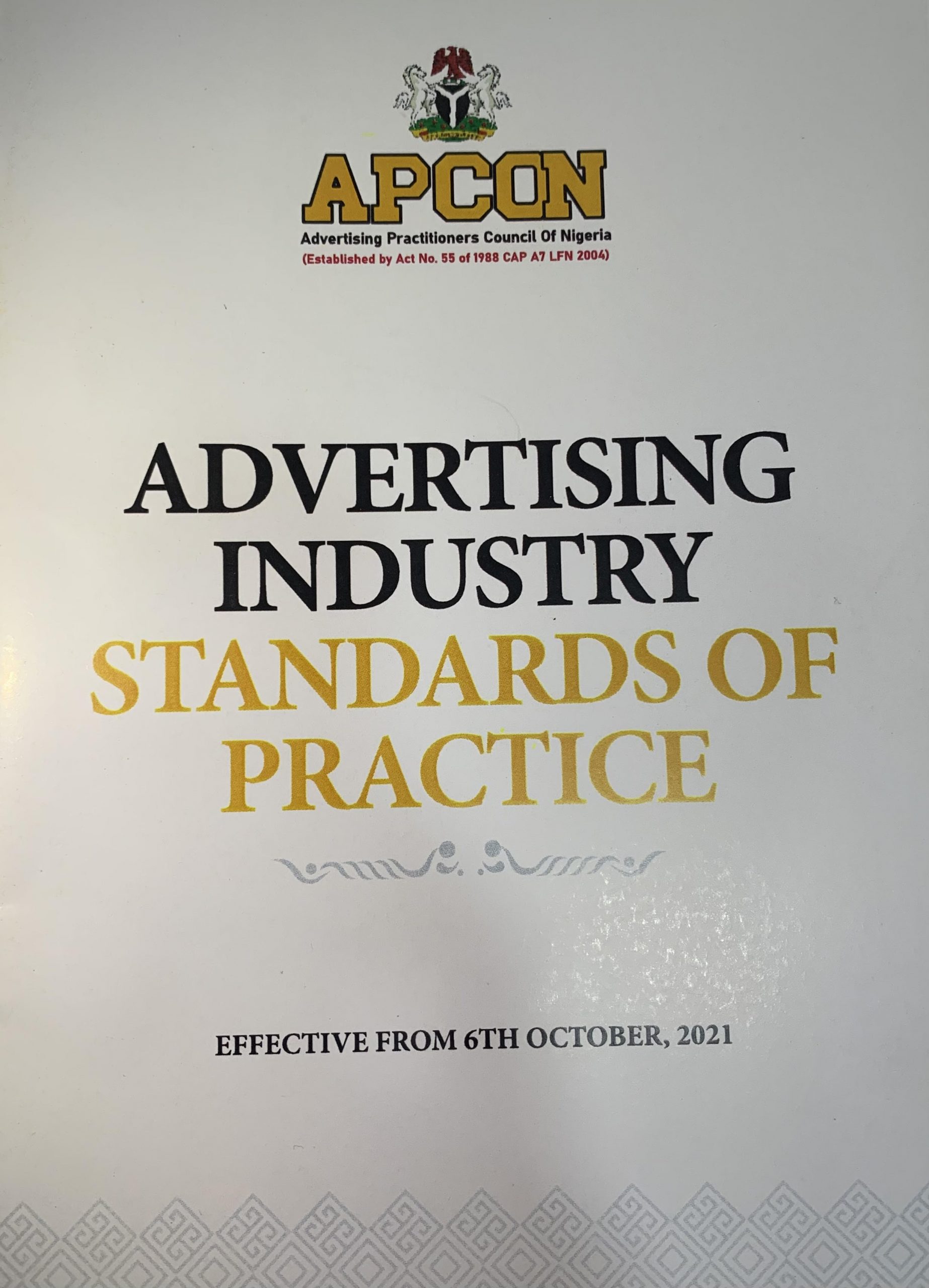By Henrietta Igbekea
The Advertising Practitioners Council of Nigeria (APCON) published new Advertising Industry Standards of Practice (AISOP) rulebook that is believed would help deepen the business relations among agencies, their clients, and the media. The rulebook recognised and indeed seeks to correct the happenings in the industry with regards to rate fixing, contractual payments, and debt settlement.
The AISOP rulebook is conceived to protect stakeholders from unethical business procedures while providing agreeable ways of settling disputes arising from transactions done under established terms and supporting enhanced development of the advertising industry in the country.
The AISOP policy impact is demonstrably on the side of Agencies and media owners giving them the upper hand and barely restrained power in every negotiation and agreement. An instance is found in the section, Media Rates/Discounts/Commissions, where it dictates that media owners can increase media rates at any time they like so long as they give 30 days’ notice. This clause invariably stands to say that media owners can dictate rules of engagement irrespective of an already existing contract with advertisers or clients.
This rules by extension seeks to impose terms of contract rather than allowing the parties to agree on favourable terms they can mutually and easily execute without any hindrance. This imposition of interest is seen on the dictate on pitch fee, and the specificity given in additional pitch fee benefit to be paid by advertisers. This imposition will not support a sustained and meaningful growth of the industry. For the industry to succeed, it will require participants in the market to have the freedom to negotiate and agree to implementable contracts on their own not the one dictated to them.
For advertisers, the application of the AISOP policy will decrease the frequency of business they give to Agencies as they will be forced to think of all the impositions laid on them and the mandated time they must comply. It will not be surprising if advertisers decide to revise their advertising calendars to say from weekly advertisements to a monthly basis and limit ad spend to the barest of minimum figures.
Small and medium-sized enterprises will not fare well under this policy as SMEs in Nigeria have limited budgets to play with. They require the credits and agreeable terms of payment negotiated with Agencies and media owners to carry out their advertising plans. But with the application of this policy which seeks to protect Agencies and media owners by imposing acceptable credit days to the disadvantage of advertisers, SMEs will barely have a chance of survival.
This policy will not receive the required popular acclaim amongst many stakeholders as the scale is largely tilted on the side of the section of the market that needs the business to stay valuable. Over time, in the face of waning business and the absolute need to run profitably, Agencies and media owners will find a way of bypassing the AISOP policy.
Without question, APCON has the authority to regulate the industry. But it is important to know how far to go while regulating the industry in other to strike a balance rather than suppress or inhibit the growth and value of the industry.
APCON’s approach as a regulatory body should ensure free flow of information amongst market participants for informed decision-making and setting up standard for goods and services evaluation not dabble in price-fixing and dictation of contract terms that will end up upsetting the market balance and harming all stakeholders. Such behaviour will void the rulebook purpose of curbing unethical business transactions and unfair agreement terms between participants in the industry. Regulatory focus should be on removing causes of market distortion not orchestrating it.







Comment
No comments found.